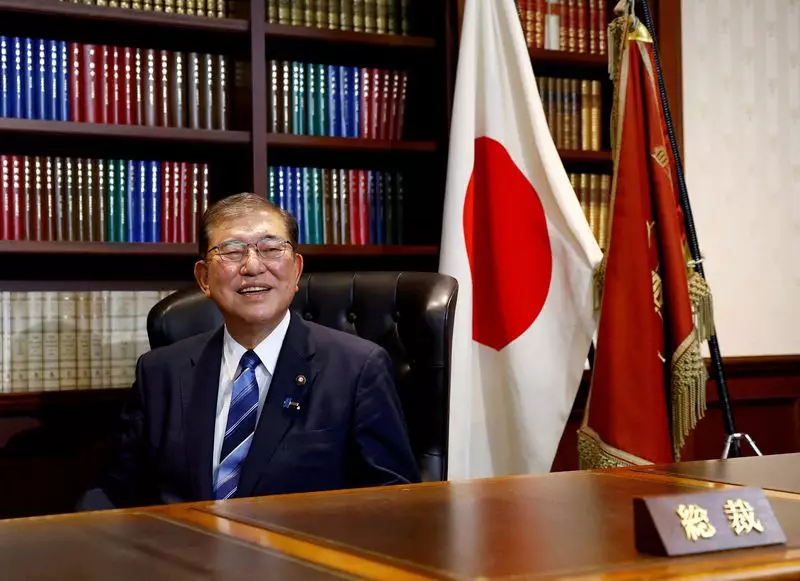With the recent ascension of Shigeru Ishiba to the position of Japan’s prime minister, the nation stands on the precipice of crucial economic decisions. His remarks regarding monetary policy suggest a continued commitment to maintaining low borrowing costs while navigating a fragile economic landscape. Understanding Ishiba’s stance provides insight into how Japan may attempt to balance fiscal needs with the realities of its economic challenges.
Ishiba’s declaration of an accommodative monetary policy indicates an acknowledgment of the ongoing necessity for economic support. Japan has struggled for years with stagnant growth and low inflation, conditions that have left many citizens vulnerable. In a recent interview, Ishiba emphasized that monetary policy should remain flexible, aligning with current economic realities. This suggests a reluctance to introduce aggressive tightening that might stifle the already fragile economic recovery. The challenge remains in striking the right balance between stimulating growth and maintaining price stability.
Ishiba’s previous criticisms of the Bank of Japan’s (BoJ) aggressive measures hint at a potential pivot in his approach. While traditionally seen as advocating for more restraint, his latest statements indicate acknowledgment of the need for ongoing support in the face of rising living costs. This creates an interesting paradox: will he continue to challenge the BoJ’s past strategies while simultaneously endorsing a similar path moving forward? This duality may be a reflection of Japan’s complex economic environment, requiring leaders to adapt their viewpoints in response to evolving circumstances.
In conjunction with monetary policy, Ishiba’s focus on fiscal measures underscores the importance of a comprehensive approach to economic recovery. By prioritizing support for low-income households, Ishiba seeks to mitigate the impact of inflationary pressures on the most impacted groups. His commitment to developing an economic support package signals an awareness that monetary policy alone may not suffice in combating rising costs. This highlights the necessity for a collaborative approach between fiscal and monetary strategies to effectively tackle economic disparities.
As Ishiba prepares to take office, he faces the daunting task of guiding Japan through turbulent economic waters. With the BoJ’s recent decisions on interest rates reflecting a cautious yet progressive approach toward normalization, the future will require deft management to navigate potential conflicts between monetary policy objectives and broader economic stability. Ishiba’s declarations reflect a leader aware of the challenges that lie ahead, emphasizing the need for cooperation between the government and the BoJ to foster a balanced economic environment.
Shigeru Ishiba’s upcoming tenure as prime minister comes at a critical juncture for Japan’s economy. His indications of continued support for accommodative monetary policy, paired with an emphasis on fiscal measures, may provide a framework for addressing both immediate economic issues and long-term sustainability. The interplay between these strategies will be pivotal as Ishiba seeks to foster a resilient economic recovery while navigating the complexities of Japan’s economic landscape. As the world watches, Japan’s path under Ishiba’s leadership will undoubtedly set the stage for its economic future.

